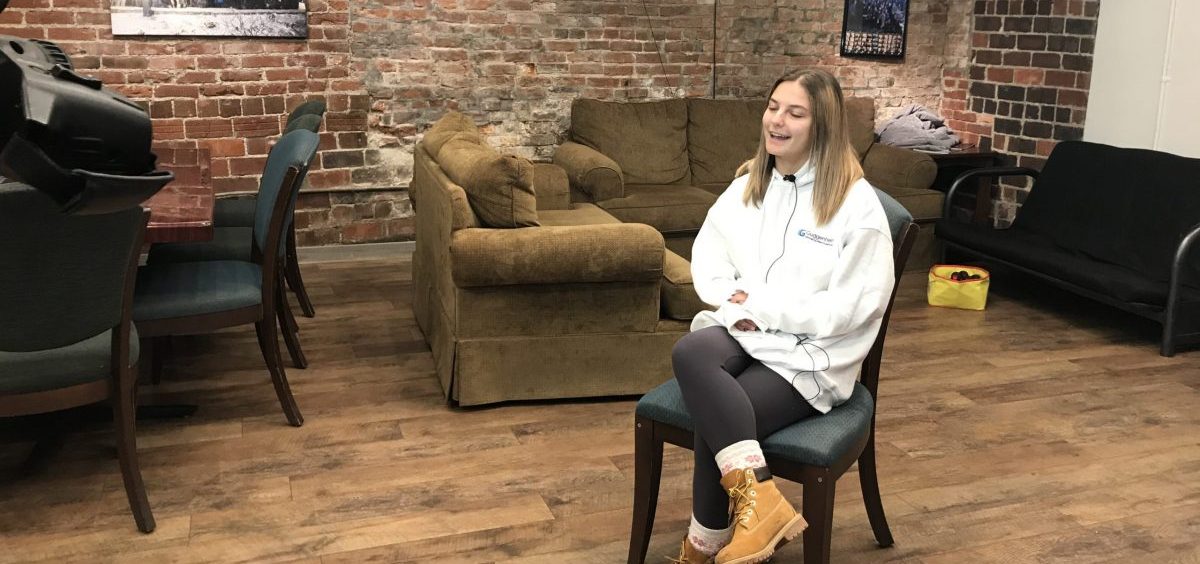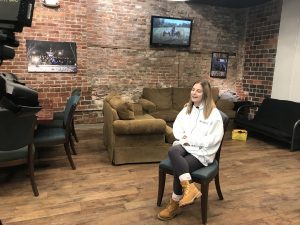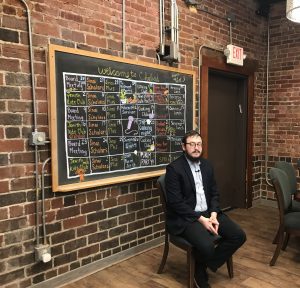
Holocaust Survivor Speaks to the Next Generation of Jewish Bobcats
By: Paige Miller
Posted on:
With a quiet smile, 90-year-old Armin Guggenheim spoke about his childhood in Germany – almost as if he didn’t live through the Holocaust.
Guggenheim and his brother hid in a synagogue in the town of Frankenwinheim, while Nazi’s attempted unsuccessfully to bust down the door.
The children slept through the attack, unaware of the magnitude of what happened until they were separated from their parents and shipped off to safety in Switzerland. The family was reunited when they emigrated to the United States nearly a year later.
Despite the terror of the events he lived through, Guggenheim rallies around the Jewish community with an optimistic demeanor.
“It’s important to see that he is happy now and he moved on with his life even after the Holocaust,” said Jamie Guggenheim, Armin’s granddaughter.
Armin Guggenheim’s story can be found in the United States Holocaust Museum. He and his family travel around the country sharing his message at venues like Ohio University’s Chabad House.
“Students today may be more removed from the Holocaust and our history so I am absolutely glad to do this event,” said Rabbi Levi Raichek, who helped organize the event for OU Chabad.

“I know a lot of people from my high school or just people in general that believe the Holocaust never actually happened and because I am so close to my grandfather and he went through such a traumatic time, I believe it’s my duty to share his story,” said Jamie Guggenheim.
Jamie Guggenheim hopes that her grandfather’s story will remind the next generation to work past potential biases and move beyond hate crimes.
Although individual states are not required to report hate crimes, the FBI reported that hate crimes in the U.S. reached a 16-year high in 2018.
“We don’t need to wait for a catastrophe to happen to be a hero. There will always someone next to you who needs help,” Raichik said .

Raichik and Jamie Guggenheim agreed the best way to help others is to make sure all who identify as a minority have a strong community to support them.
“I think it’s important for them to find a place where they can go and safely express who they are and express their culture or religion,” said Jamie Guggenheim.

